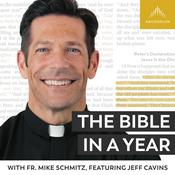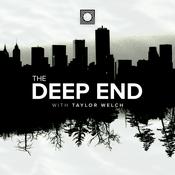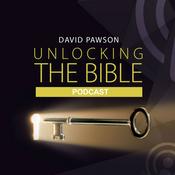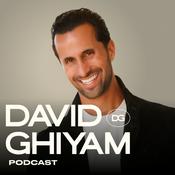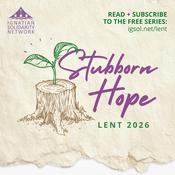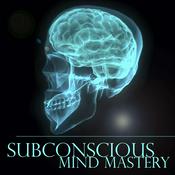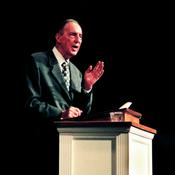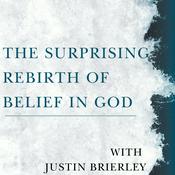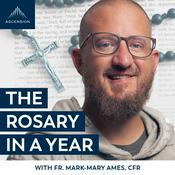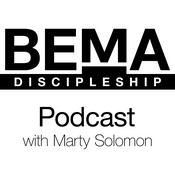Conversing with Mark Labberton
Comment + Fuller Seminary
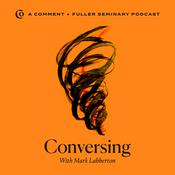
Latest episode
250 episodes
- As we approach Ash Wednesday and the 2026 Lenten season, Makoto Fujimura's vision of slow art, hospitality, and kenotic creativity invites us to resist the speed, fear, and fragmentation of this cultural moment by learning again how to pay attention, to rest, and to become people capable of holding one another with care even amid grief, violence, and uncertainty.
In this conversation, fine artist Makoto Fujimura reflects on art, trauma, hospitality, and the slow practices that help us remain human in fractured times.
"I wanted this book to serve as a portal… to recognize something as maybe ordinary or as extraordinary as holding your granddaughter."
Together with Mark Labberton, Fujimura reflects on art as generativity, kenosis, and the healing practice of attention.
Together they discuss slow art, Ground Zero and trauma, Japanese aesthetics and hospitality, dandelions and attention, Sabbath rest, and self-emptying love. They explore how making art helps people remain human amid violence, polarization, and technological acceleration.
Episode Highlights
"I wanted this book to serve as a portal… to recognize something as maybe ordinary or as extraordinary as holding your granddaughter."
"We are not just making… we are being made."
"God is indeed the host."
"Art is… a way for us to navigate our complex times."
"It is okay for me to give my life away."
About Makoto Fujimura
Makoto Fujimura is a contemporary artist, writer, and cultural thinker known for "slow art" rooted in Japanese Nihonga painting traditions. His work explores generativity, culture care, theology of making, and the relationship between beauty and suffering. Having lived and worked near Ground Zero after 9/11, his artistic practice reflects themes of trauma, hospitality, and new creation. He is the author of Art Is: A Journey into the Light and other books on art, faith, and culture.
Helpful Links And Resources
Art Is: A Journey into the Light https://yalebooks.yale.edu/book/9780300273656/art-is/
Makoto Fujimura Website https://makotofujimura.com/art
International Arts Movement https://iamculturecare.com/
Art and Faith: A Theology of Making https://yalebooks.yale.edu/book/9780300285482/art-and-faith/
Show Notes
Lifelong friendship, artistic influence
Slow art as resistance to acceleration
Minneapolis demonstrations; dignity across legal status; 50,000 people marching in extreme cold as witness to human worth
"I was holding Jane."
Art as portal into ordinary life
Making and being made simultaneously
Scientist father, generative language framework
Kamakura childhood aesthetics
Insider–outsider identity formation
Japanese language, visual thinking, layered perception
Ground Zero studio years after 9/11 shaping imagination, community awareness, and artistic responsibility
Hospitality as artistic and theological practice
Survivor identity discovered through conversation with Columbine survivor
"God is indeed the host."
Attention, "minute particulars," and gratitude amid suffering
Dandelions meditation: beauty in unwanted places; seeds surrendering to wind; healing compacted soil; overlooked gifts of creation
Slow art practice: pausing, observing, letting meaning emerge rather than forcing conclusions
Sabbath, rest, and imagination as resistance to productivity-driven identity
Kenosis paintings, gold, generosity, and self-emptying love as cultural antidote
"It is okay for me to give my life away."
#MakoFujimura
#SlowArt
#CultureCare
#FaithAndArt
#Hospitality
#Kenosis
#CreativeProcess
#SpiritualFormation
Production Credits
Conversing is produced and distributed in partnership with Comment magazine and Fuller Seminary. - Singer-songwriter Jon Guerra joins Mark Labberton to explore devotional songwriting, public faith, and the tension between the kingdom of Jesus and American cultural power. Through music and reflection, Guerra considers how art can hold grief, courage, and hope together in turbulent times.
"Love has a million disguises, but winning is simply not one."
In this episode with Mark Labberton, Guerra reflects on songwriting as prayer, the call to love enemies, and artistic courage in moments of cultural crisis.
Together they discuss devotional music, George Herbert's influence, the Beatitudes and American culture, citizenship and immigration imagery, increasing polarization, suffering and grace, and the vocation of Christian artists.
Episode Highlights
"Love has a million disguises, but winning is simply not one."
"When Jesus says to love your enemies… he is giving us a means of survival."
"This is not sentimentality… the only way to resist becoming what one hates."
"My songwriting… would be a means of coming into contact with the invisible God."
"Beauty puts us in contact with invisible things."
About Jon Guerra
Jon Guerra is a singer-songwriter based in Austin, Texas, known for devotional music that blends poetry, theology, and contemporary cultural reflection. His albums include Little Songs (2015), Keeper of Days (2020), Ordinary Ways (2023), and American Gospel. Guerra has also composed music for film, including Terrence Malick's A Hidden Life (2019). The son of immigrants from Cuba and Argentina, his work often explores themes of citizenship, prayer, justice, and the teachings of Jesus. His songwriting draws inspiration from figures like George Herbert and Howard Thurman, and seeks to connect spiritual devotion with public life.
Helpful Links and Resources
Jon Guerra website: https://www.jonguerramusic.com/
American Gospel album: https://jonguerra.bandcamp.com
A Hidden Life film: https://www.searchlightpictures.com/ahiddenlife
Jesus and the Disinherited by Howard Thurman: https://www.beacon.org/Jesus-and-the-Disinherited-P1781.aspx
The Porter's Gate: https://www.portersgateworship.com/
Show Notes
Devotional songwriting
George Herbert influence on the pursuit of prayerful craft
"Music for attending to the soul."
Monday morning prayer music framing devotional practice
Beauty and invisible realities in artistic experience
American Gospel song introduction and cultural critique
Beatitudes inversion in American culture
"How do I give Christ a say in this conversation?"
Love Your Enemies composition and album Jesus
Howard Thurman's influence on enemy-love theology (Jesus and the Disinherited)
Emotional formation through news, anger, and public life
Death of ego and kingdom discipleship
Kierkegaard and faith beyond ideology
Worship as reordering power
Kingdom of Jesus song and Pilate encounter
Allegiance to a greater kingdom beyond nationalism
Citizenship as foreignness imagery
Immigrant family background shaping songwriting
Citizens song written after 2017 inauguration
"Come to you because I'm confused."
Five-four musical structure expressing disorientation
Groaning beauty and Romans 8 resonance
Artists as "holy fools" naming reality
Moltmann and theology near the cross
Simone Weil: gravity and grace reflection
"Love has a million disguises, but winning is simply not one."
Hashtags
#JonGuerra
#DevotionalMusic
#LoveYourEnemies
#ChristianArt
#AmericanGospel
#PublicFaith
#Jesus
#Gospel
#SpiritualFormation
Production Credits
Conversing is produced and distributed in partnership with Comment Magazine and Fuller Seminary. - When federal agents kill civilians and public outrage sweeps the nation, who gets to define justified force and who gets to hold power accountable? The killings of Renée Good and Alex Pretti have sparked protests, national shutdowns, and fresh debate about what security should look like in America.
Elizabeth Neumann, former assistant secretary for counterterrorism at the US Department of Homeland Security, joins Mark Labberton for a wide-ranging conversation about fear-based governance, moral responsibility, constitutional guardrails, and what faithful leadership looks like in a moment of political crisis.
"Cruelty is a deterrent."
In this episode with Mark Labberton, Neumann reflects on how Christian faith and public service shaped her national security career and why recent forceful immigration enforcement and lethal encounters challenge constitutional limits and moral clarity.
Together they discuss the moral and political meaning of the Minneapolis killings, trauma and vocation, immigration enforcement and democratic consent, fear-driven leadership, and how citizens and faith communities respond when institutions break down.
Episode Highlights
"Cruelty is a deterrent."
"I realized how much my hope and trust had been in man."
"We wrapped the flag around the cross."
"We see sufficiently, but not transparently."
"This is not normal, and this is not okay."
About Elizabeth Neumann
Elizabeth Neumann is a national security expert and former assistant secretary for counterterrorism at the US Department of Homeland Security. She served across three presidential administrations, including senior roles during the George W. Bush and Trump administrations, and worked extensively on counterterrorism, prevention of political violence, and domestic extremism. A frequent public commentator and congressional witness, Neumann has become a leading voice on the moral and constitutional dangers of fear-driven governance. Her work bridges public policy, trauma studies, and Christian ethics, particularly where political power collides with faith commitments. She is the author of Kingdom of Rage, a deeply personal and analytical account of extremism, nationalism, and the cost of unexamined allegiance.
Helpful Links and Resources
Kingdom of Rage: The Rise of Christian Extremism and the Path Back to Peace https://www.amazon.com/Kingdom-Rage-Christian-Extremism-Peace/dp/1546002057
Show Notes
Elizabeth Neumann's experience growing up in North Texas
Faith and party loyalty culturally fused
"To be a Christian meant you were a Republican."
Early fascination with politics and government service
University of Texas, late 1990s political climate
George W. Bush campaigns as formative training ground
Entry into White House work through campaign victory
Faith-based initiatives before September 11 reshaped national priorities
September 11 as lived experience, not abstraction
Crossing the 14th Street Bridge as the attacks unfolded
"We were under attack," and nothing felt safe
Fog, confusion, smoke, radios, and unanswered phone calls
Trauma before resilience, fear before context
Learning endurance from older colleagues who said, "We will get through this."
Trauma as vocational fuel
Hypervigilance, workaholism, and mission-driven identity
National security as moral calling rather than career ambition
Warning from a CIA colleague: rebuild a cadence of normal life
Vigilance versus fear-driven overwork
Marriage, family, and a season of spiritual deepening
Scripture as disruption: Jeremiah 17 and misplaced trust
"I realized how much my hope and trust had been in man."
Public policy confidence challenged as spiritual idolatry
Russell Moore sermon and the shock of naming Christian nationalism
"We wrapped the flag around the cross."
Cultural Christianity exposed as formation, not gospel
Deconstructing politics without deconstructing faith
Becoming comfortable with ambiguity and moral gray
Labberton on seeing "through a glass darkly"
Interpretive humility versus certainty culture
Returning to government during the Trump administration
Saying yes out of mission, not agreement
Guardrails inside government: translating impulse into lawful action
Illegal orders, pressure, and survival mode governance
Lafayette Square as turning point
Peaceful protesters met with militarized force
Optics over constitution
Immigration enforcement reframed as cruelty-based deterrence
"Cruelty is a deterrent."
ICE, CBP, and DHS operating outside traditional norms
First, Second, and Fourth Amendment violations described
Warrantless searches and administrative authority
Law enforcement trained for war zones policing civilian streets
Rapid ICE expansion without vetting or adequate training
Fear rhetoric inside agencies creating enemy mentality
Officers taught to expect violence from the public
Predictable escalation and preventable deaths
Moral injury to agents and terror inflicted on communities
"This is not normal, and this is not okay."
Democracy requires consent of the governed
Public trust collapsing when law breaks the law
Call for stand-down, retraining, and accountability
Faithful resistance as moral clarity, not partisan alignment
#ElizabethNeumann #FaithAndPolitics #NationalSecurity #ImmigrationCrisis #MoralCourage #PublicFaith
Production Credits
Conversing is produced and distributed in partnership with Comment Magazine and Fuller Seminary. - Church planting is thriving at the very moment the church faces a crisis of credibility. What if the problem isn't too few churches—but too narrow a vision of what church is for?
In this episode with Mark Labberton, Brad Brisco reflects on church planting shaped by Christology before strategy, mission before institution, and incarnation before programs. Together they discuss missionary imagination in the modern West, co-vocational ministry, alternative expressions of church, micro-church networks, church growth assumptions, vocation and work, justice and proximity, and what it means to return—daily—to the ways of Jesus.
––––––––––––––––
Episode Highlights
"We need to help church planters think less like pastors starting a Sunday service and more like missionaries engaging a unique context."
"If by church we mean buildings, then no—we don't need more of those."
"Mission isn't really ours. It's about what God's already doing."
"We can say we're gospel-centered and still miss the ways of Jesus."
"The only way the church gets this far off is by being void of the ways of Jesus."
––––––––––––––––
About Brad Brisco
Brad Brisco is a missiologist and church planting leader, trainer, and writer who has spent more than twenty-five years coaching and resourcing church planters across North America. After beginning his career in the restaurant industry, Brisco entered ministry through church planting and later joined Send Network, where his work has focused on alternative expressions of church, co-vocational leadership, and missionally engaged discipleship.
He also serves on the national leadership team for Forge America Mission Training Network. Brad is the co-author of "Missional Essentials," a 12-week small group study guide, "The Missional Quest: Becoming a Church of the Long Run" and "Next Door As It Is In Heaven."
He is widely known for challenging church growth assumptions and for advocating Christ-centered, incarnational approaches that integrate faith, work, and neighborhood life.
Brisco remains closely connected to decentralized microchurch networks and innovative models of mission in urban contexts.
Follow him on X: https://x.com/bradleybrisco
––––––––––––––––
Helpful Links and Resources
Missional Church Network https://www.missionalchurchnetwork.com/
Send Network https://sendnetwork.com
The Shaping of Things to Come – Alan Hirsch and Michael Frost https://www.amazon.com/Shaping-Things-Come-Innovation-Mission/dp/1565636597
Permanent Revolution – Alan Hirsch https://www.amazon.com/Permanent-Revolution-Apostolic-Imagination-Practice/dp/0470907746
Tampa Underground https://www.tampaunderground.com/
––––––––––––––––
Show Notes
Church planting boom alongside institutional church crisis
Restaurant business background shaping entrepreneurial ministry instincts
Conversion, seminary, and inherited assumptions about "real" ministry
Early confusion about church planting as a category
From planting one church to training planters nationally
Church defined beyond buildings toward embodied communities
"If by church we mean buildings, then no—we don't need more of those."
Missionary context of the modern West
Do we need more churches or more ways of being church?
Underserved neighborhoods and unengaged people groups
Declining interest in traditional church programs
Airplane anecdote exposing attractional church assumptions
"You just need a really good sound system and a good speaker."
Mission versus Sunday-centric church planting
Christology–missiology–ecclesiology framework
Jesus shaping mission before shaping church
"Most church planters start with ecclesiology rather than the ways of Jesus."
Church growth movement assumptions challenged
Recapturing the missionary nature of the church
Church as sent people, not religious service provider
Incarnational presence in neighborhoods and workplaces
"Mission isn't something we do over there."
Participation in the mission of God
"The mission isn't really ours—it's about what God's already doing."
Individual salvation versus communal discipleship
Robust Christology beyond the cross alone
Incarnation, life, resurrection, and kingdom shaping mission
Brokenness, proximity, and responsibility for place
Mission as communal, not individual activity
Bi-vocational and co-vocational ministry distinctions
Marketplace calling as missional advantage
Sacred–secular divide challenged
Time constraints forcing alternative church models
Team-based leadership as non-negotiable
Theology of work as essential formation
Financial freedom reshaping church planting incentives
Fully funded models drifting toward attractional pressure
Co-vocational longevity and sustainability
Microchurch networks and decentralized leadership
Tampa Underground as proof of concept
Mission-first communities addressing justice and brokenness
"Mission is the mother of adaptive ecclesiology."
Diverse expressions emerging from contextual mission
Established churches learning from church planting frameworks
Incremental versus wholesale institutional change
Sending churches supporting new expressions
Calling the church back to the ways of Jesus
"We can be gospel-centered and still miss the ways of Jesus."
Credibility gap between Jesus and the church today
Recalibrating discipleship for public faithfulness
––––––––––––––––
#ChurchPlanting
#MissionalChurch
#FaithAndWork
#Discipleship
#ChristianLeadership
#PublicFaith
#Vocation
––––––––––––––––
Production Credits
Conversing is produced and distributed in partnership with Comment Magazine and Fuller Seminary. - Christian faith has been politicized. Arguably, this is not new. But what we see in America and other societies has a jarring impact for those who seek a credible public Christian faith. To examine how Christian faith has been politicized in recent years, preacher and public theologian Jonathan Wilson-Hartgrove joins Mark Labberton, asking what moral resistance requires in this authoritarian moment.
"I couldn't know Jesus in the fullness of who Jesus is without integrating faith and justice."
In this episode: Wilson-Hartgrove reflects on his Southern Baptist formation, his political awakening, and a conversion that reordered his understanding of Jesus, justice, and public life.
And: Trying to understand Christian nationalism, authoritarian power, poverty and race, moral fusion movements, just war theology, the discipline of prayer, and how churches can reclaim biblical values for the common good.
Episode Highlights
"I couldn't know Jesus in the fullness of who Jesus is without integrating faith and justice."
"The radical separation of faith from justice was a way my faith was stolen from me."
"We are in an authoritarian crisis that tells its own version of reality."
"Christian nationalism offers an alternative reality that very sincere people come to trust."
"Prayer interrupts the liturgy of consumerism and gives us another story."
About Jonathan Wilson-Hartgrove
Jonathan Wilson-Hartgrove is an author, preacher, and public theologian working at the intersection of Christian faith, moral movements, and public life. He serves as Assistant Director of the Yale Center for Public Theology and Public Policy and has spent more than two decades in faith-rooted movements for social change. A longtime collaborator with Bishop William J. Barber II, he has helped articulate the Moral Movement's moral framing of poverty, race, and democracy. Wilson-Hartgrove is the author of multiple books on public faith, justice, and Christian discipleship, and a co-creator of the widely used prayer resource Common Prayer. He lives in North Carolina, where his work remains grounded in local churches and communities.
Learn more and follow at jonathanwilsonhartgrove.com and @wilsonhartgrove
Helpful Links and Resources
Revolution of Values: Reclaiming Public Faith for the Common Good https://www.broadleafbooks.com/store/product/9781506484136/Revolution-of-Values
Common Prayer (with Shane Claiborne) https://www.zondervan.com/p/common-prayer/
White Poverty (with William J. Barber II) https://www.uncpress.org/book/9781469661927/white-poverty/
Yale Center for Public Theology and Public Policy https://publictheology.yale.edu/
Show Notes
– Growing up in rural North Carolina tobacco country; The Andy Griffith Show based on his former community
– Southern Baptist formation, scripture memorization, and the King James Bible
– Moral Majority era shaping faith and politics
– Early ambition to serve Jesus through political power
– Greyhound trip to Washington, DC with grandfather
– Becoming a Senate page at sixteen
– Working in the office of Strom Thurmond
– Encountering the racial subtext of American politics
– "There was a distance between Sunday school and what was practiced"
– Learning how southern politics realigned after civil rights
– Leaving partisan politics searching for faithful public life
– Disorientation and not knowing another way to be Christian
– Meeting a preacher shaped by the civil rights movement
– Discovering a faith that named injustice without condemnation
– "I needed another way to be Christian in public"
– Colorblind theology and segregated church life
– Conversion as seeing Jesus and reality differently
– Faith reordered by relationships, not ideology
– Christian opposition to the Iraq War
– Traveling to Iraq during U.S. bombing
– "According to just war theory, this wouldn't be a just war"
– How common sense changes over time
– Christian nationalism and manufactured moral narratives
– Alternative realities formed by trusted information sources
– "We are in an authoritarian crisis"
– Mutual aid, churches, and local resistance
– Poverty as a moral and political vulnerability
– Prayer as resistance to consumerist liturgy
– Common Prayer and the rhythm of scripture
– "Prayer gives us another story to live inside"
#JonathanWilsonHartgrove
#Authoritarianism
#PublicFaith
#ChristianNationalism
#MoralMovement
#FaithAndJustice
#CommonGood
Production Credits
Conversing is produced and distributed in partnership with Comment Magazine and Fuller Seminary.
More Religion & Spirituality podcasts
Trending Religion & Spirituality podcasts
About Conversing with Mark Labberton
Conversing with Mark Labberton invites listeners into transformative encounters with leaders and creators shaping our world at the intersection of Christian faith, culture, and public life.
Podcast websiteListen to Conversing with Mark Labberton, The Bible in a Year (with Fr. Mike Schmitz) and many other podcasts from around the world with the radio.net app

Get the free radio.net app
- Stations and podcasts to bookmark
- Stream via Wi-Fi or Bluetooth
- Supports Carplay & Android Auto
- Many other app features
Get the free radio.net app
- Stations and podcasts to bookmark
- Stream via Wi-Fi or Bluetooth
- Supports Carplay & Android Auto
- Many other app features


Conversing with Mark Labberton
Scan code,
download the app,
start listening.
download the app,
start listening.

